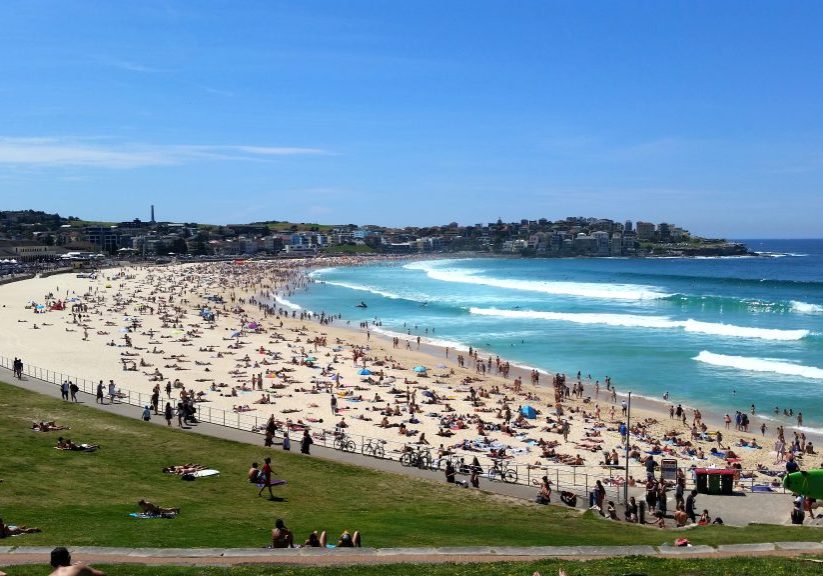Australia/Israel Review
At the Centre
Aug 1, 2005 | External author
Israel, disengagement and terror
By Martin Peretz
I landed in Israel on Tuesday, July 12. Just before my plane touched down a suicide bomber blew himself up in Netanya, proclaiming his arrival in paradise, and — as a certification of his entitlement to paradise — announcing that he had taken the lives of five Jews with him. On Thursday, a 22-year-old woman, sitting with her by-now-wounded boyfriend, was killed in pre-1967 Israel by a Qassam rocket aimed from Gaza, about to be turned over to the Palestinian Authority (if it can hold it) and (if it can’t), in the end, to Hamas, which won’t even fake saying that it wants to end the bloodshed with the Jewish state. As The Jerusalem Post pointed out, Netiv Ha’asara, the Negev village in which Dana Galkovitch was murdered in her stunning innocence, had just been certified by “moderate” PA minister Mohammad Dahlan to be part of the territory that would have to change hands even in a provisional settlement with Israel.
The rub is that this new territorial claim extends to land allocated to Israel by the 1949 Rhodes Armistice Agreement, which is what constitutes the 1967 borders. But the 1967 ceasefire lines are supposed to be sacrosanct. In any case, they include kibbutzim that go back to Israel’s pre-state history.
Many continue to assert that a return to 1967 is a sine qua non for peace, not just between Israel and its neighbours but between the West and Islam. Yes, Israel will return (to be truthful, it won’t) to its fragile territories of 57 years ago. And what is supposed to happen? The future killers for Islam, the spiritual comrades of the wired-up holy martyrs at Bali, Madrid, London, and of Mohammad Atta’s gang in New York and the Pentagon, will stop short in their elaborate conspiracies and go back to live their resentful lives in peace. Oh, the burdens on these precarious frontiers.
To usher in the Israeli disengagement from Gaza, scheduled for a month hence, Palestinian militants hurled in a day and a half more than a hundred rockets and mortar bombs across the 1949 lines into the Negev. Forgive my insistence on truth in labelling. But the habit of naming these lines “1967 borders” is meant to deceive, as if it was Israel that broke the ceasefire and not Egypt, Syria, and Jordan, and as if all the troubles started with the occupation. This little correction reminds that the Palestinians, even the more sober among them, had not and have not yet come to terms with the very existence of Israel. After all, the PLO was founded long before Israel held any part of the West Bank or Gaza and while Jerusalem was divided, with the Western Wall and other Jewish holy sites in Arab hands. And why, for that matter, did the Arab states launch a war against Israel before any Israeli could set foot in the old city? It is actually quite frustrating to need to dwell on this elementary history. But it is also a necessity. Almost nobody knows it.
Israel cannot allow Palestinian militias to kill Israelis at tactical whim. In any case, it won’t. One consequence of Jewish sovereignty is that Jewish blood is no longer cheap, and so Israel has this time taken out in targeted assassinations seven Hamas militants and detained some 20 Islamic Jihad militants. This is a big favour for Mahmoud Abbas, though he is unlikely to acknowledge it. If he and his regime survive, he will have to deal with the proliferation of armed factions, each a quite congenial combination of ideologists and gangsters, one better armed than the other, with all their weapons other than the specified 30,000 rifles being violations of the Oslo agreement for which Yitzhak Rabin, Shimon Peres, and Yasser Arafat won the Nobel Prize. Please grasp the fraudulence that was intrinsic to the peace compact from its September 1993 certification on the White House lawn. It will help you grasp the future.
In the meantime, the settlement ultras are trying to stop the withdrawal. Every day, they attempt to tie up the country in one way or another, mostly at crossroads and traffic junctions. It is a great inconvenience. No more than that, except that it shows that the Israeli far right is far less law-abiding than ever was the Israeli left. Still, my guess is that breaking the law has its limits even with the territorial fundamentalists. Many of them have proclaimed their contempt for the State of Israel. They have opted for the holiness of the Land of Israel, at least in verbiage, rather than for the legitimacy of the polity. It’s my view, however, that once the army knocks on their doors they’ll go. Some of them will shriek. They surely won’t all leave Gaza supinely, but leave they will. As for soldiers refusing to perform their duty, this will turn out to be one of those failed prophecies of critics of Israel who were always seeing civil war breaking out in the country because that’s what they hoped would happen: the civil war between the Sephardim and the Ashkenazim, between the secular and the ultra-pious, between the rich and the poor. In my view, for all the tempestuousness of Israeli democracy, there is no polity I know of that is more secure in its own nationhood. After all, it was the Jews who first in history gave substance to the very idea of the nation.
The other night, I was at dinner at an apartment of friends that overlooks the Western Wall, always a stirring visual, even spiritual, experience. The anti-withdrawal movement had summoned a prayer meeting aimed at mobilising the ultra-orthodox. Numerically, it was a flat-out bust. There were very few black coats in attendance. There were very few any coats, in fact. The Fast of Gedaliah, a date on the religious calendar I bet almost none of you have ever heard of, draws more people to the Wall than this weepy congregation of those faithful to both God and the Land. One is not permitted to give speeches at the Wall, so there were prayers and prayers and prayers. I could not count how many times kaddish was chanted. Some of this sounded like the funerals of the dead who had no mourners, the incantations being done by professional vayners, Yiddish for weepers. One thing is certain: Like to the prayers of most folk, God will not answer as his petitioners implored him. They did slash the tires of some cars sporting blue and white streamers, signs that their owners supported the Sharon government in trying once again to engage the Palestinians in some sort of peace.
Dry Bones has been a visual Jerusalem Post “comic strip” commentator of Israeli and world politics for more years than I care to remember. Here’s what the strip characters said to each other this Sunday morning:
The Islamic bombings of London are just like the Nazi blitz.
Except that when the Nazis bombed London the British understood that they were at war and did not look into what “motivated” the bombers.
The grim number of the dead in London has risen to 56. Tony Blair is still looking for what motivates these macabre types. But he has ruled out Iraq and, for that matter, “the plight of the Palestinians.” He is right, of course. He pointed out that Muslim terror killed many thousands of innocent people in 26 countries during the last twelve years. Blair also noted that Muslim terror — in Israel and elsewhere, it should be said — always escalates whenever Israel and the Palestinians seem to be making some progress. I do not want for a moment to belittle the number of Brits who were murdered in the tubes and on the bus in London. It might actually bring the UK to its senses. A country that wants to survive in our time cannot be open to everyone any longer. But the number of 56 London dead is not stunning in Israel; it used to happen every week, more or less, until the Israelis really learned how to deal — not perfectly, but more competently — with the bloodlust of their enemies. (This competence seems to have irritated the assembled divines of the Anglican Church in the US and the UK, as also their brother Presbyterians.) The number of 56 dead is certainly a commonplace in Iraq. On July 16, 100 Shi’a were murdered near a mosque south of Baghdad. Some dozens were killed the day before and more than a dozen the day before that. The day after, seven people died in the helter-skelter killing that is life in Iraq. Israelis now know they must deal ruthlessly with their terrorist tormentors, and they do. My guess is that the English will, too, and even the French. The Dutch also know what faces them.
But for Iraq, commentators — obsessives here, there, everywhere — have other advice: The Sunni ultras have to be conciliated. It’s not enough that they be represented in the new government by more than their proportional share in the population. It is not enough that literally, for the first time in the history of Mesopotamia, government in Baghdad is somehow dependent on the expressed will of the governed. No, the secular Sunni Ba’ath terrorists are to be placated and empowered, and the pious Sunni terrorists — both native and imports from the reckless orbit of inflamed Islam everywhere — are also to be conciliated. In the end, Iraq (like Great Britain and the other endangered polities of Europe) will learn, yes, you have it, from Israel. It is the only way for a country to survive its enemies.
Martin Peretz is Editor-in-Chief of The New Republic. © The New Republic, all rights reserved, reprinted by permission.






